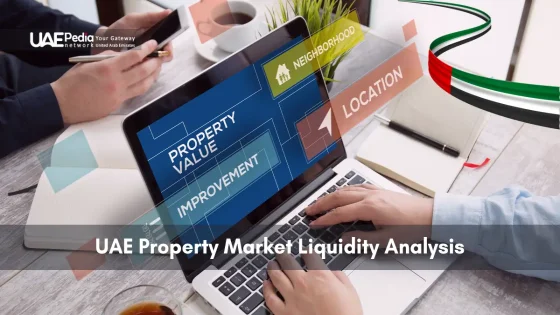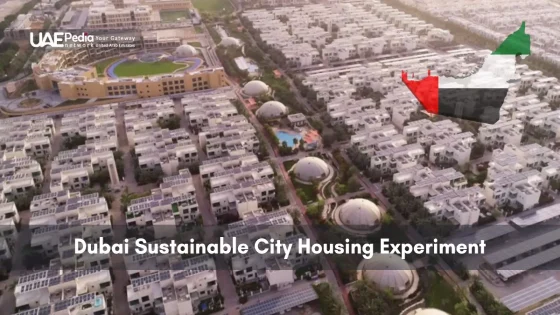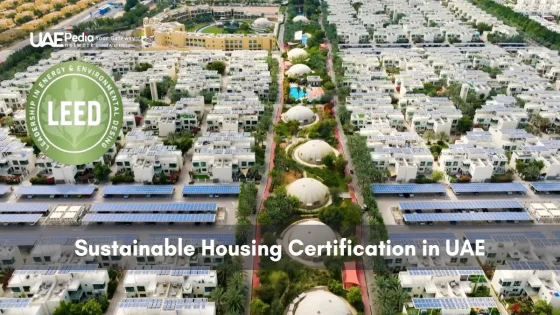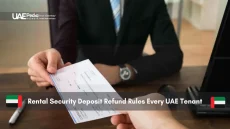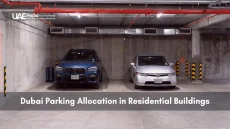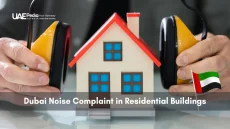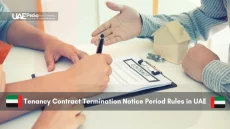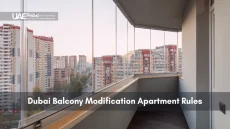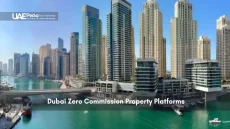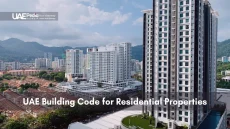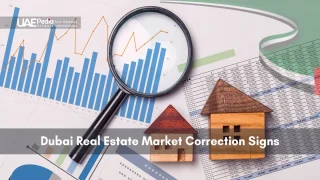Did you know Dubai’s property market grew by 46% in 2022 alone? For professionals eyeing this vibrant sector, understanding local regulations isn’t just paperwork—it’s your golden ticket. Whether you’re drawn to sleek skyscrapers or waterfront villas, compliance with regional standards separates dreamers from doers.
Securing authorization here unlocks more than legal approval. It connects you to high-value transactions and trusted partnerships. Think of it as learning the rhythm of a city where tradition meets innovation—like mastering the perfect blend of karak chai and futuristic architecture.
Global firms like Engel & Völkers thrive here because they prioritize proper credentials. Training programs, such as those from DREI, simplify the journey. You’ll need a residency visa and certified courses, but the path becomes clearer with the right guidance.
This guide walks you through each phase—no jargon, just actionable steps. We’ll explore how cultural awareness shapes deals and why shortcuts never pay off in this meticulous market.
- Compliance is key: Align with RERA standards to access premium opportunities.
- Training matters: Accredited programs fast-track your credibility.
- Cultural fusion: Success here balances local customs with global ambition.
Understanding the Dubai Real Estate Landscape
Picture a city where skyscrapers sprout faster than coffee orders at a Friday brunch. Dubai’s property scene thrives on this energy—think floating villas, AI-managed towers, and neighborhoods shaped like palm trees. This isn’t sci-fi; it’s daily life in a market where innovation meets luxury.
Where Sand Meets Skyline
Global investors flock here for projects blending futuristic design with cultural flair. Areas like Palm Jumeirah and Downtown Dubai see 20% annual transaction growth. Why? Tax-free zones, visa incentives, and a 90% expat population create a playground for high-stakes deals.
| Area | Key Features | 2021-2023 Price Trends |
|---|---|---|
| Palm Jumeirah | Waterfront villas, private beaches | +34% |
| Downtown Dubai | Burj Khalifa views, luxury retail | +28% |
| Dubai Hills Estate | Golf courses, family-friendly parks | +41% |
Rules of the Game
Every deal here dances to the rhythm of two key players: the Dubai Land Department (DLD) and the Real Estate Regulatory Agency (RERA). In 2022, DLD introduced stricter licensing rules—like mandatory blockchain training for brokers. RERA certification? That’s your backstage pass to ethical transactions.
“Our goal is clarity,” says a DLD spokesperson. “When buyers and sellers trust the process, everyone wins.”
These groups ensure contracts protect both parties, from escrow services to dispute resolution. Want to join this arena? Start by learning their playbook—it’s less about red tape and more about building trust in a market where handshakes still matter.
Eligibility and Prerequisites for Aspiring Agents
Imagine stepping into a market where luxury yachts dock beside desert dunes—this is Dubai’s playground for property professionals. Before diving in, let’s unpack the essentials that turn ambition into action.
Age and Education: Your Launchpad
You’ll need to be at least 21—a rule that ensures maturity in handling high-stakes deals. A high school diploma or equivalent acts as your baseline credential. Think of it as proving you’ve mastered the basics before tackling complex transactions.
Residency and Reputation Checks
A valid residency visa is non-negotiable, even for expats. Securing one involves sponsorship through employment or business setup—a process the Dubai Land Department cross-checks meticulously. Pair this with a good conduct certificate from your home country or UAE authorities. As Sarah, a broker from Miami, shared: “My police clearance took two weeks, but it fast-tracked my application approval.”
| Requirement | Details | Processing Time |
|---|---|---|
| Age | 21+ years | Instant verification |
| Education | High school diploma | 1-3 days for review |
| Residency Visa | Valid UAE sponsorship | 2-4 weeks |
| Conduct Certificate | Local/Int’l police clearance | 1-2 weeks |
These steps aren’t hurdles—they’re quality filters. Meet them early, and you’ll glide into training programs and licensing phases without hiccups. Next up: navigating the application maze with precision.
Estate Agent License Requirements Dubai: A Detailed How-To Guide
Imagine this process as your treasure map—X marks six strategic stops. From residency paperwork to digital submissions, each phase builds toward unlocking career opportunities. Let’s chart the course.
Blueprints for Success
Start with securing your residency visa through employment or business sponsorship. Next, enroll in Dubai Real Estate Institute (DREI) courses—think of these as your navigation tools for local market nuances. One recent graduate shared: “The ethics module transformed how I approach client negotiations.”
| Step | Key Action | Timeline |
|---|---|---|
| 1 | Residency Visa Acquisition | 2-4 weeks |
| 2 | DREI Course Enrollment | 3-5 business days |
| 3 | Exam Preparation | 2 weeks study |
| 4 | Trakheesi Portal Submission | 48-hour acknowledgment |
Paperwork Made Painless
Gather these four essentials: passport copies, Emirates ID scans, police clearance, and course certificates. Double-check expiry dates—a common hiccup. Use the land department’s online portal for real-time application tracking.
| Document | Detail | Pro Tip |
|---|---|---|
| Passport | Color copies, all pages | Scan at 300 DPI for clarity |
| Training Proof | DREI-issued certificate | Keep digital & physical copies |
| Conduct Certificate | Not older than 3 months | Request via MOI app |
Most applications clear within 15 working days. Budget AED 8,000-12,000 for fees—view it as investing in market credibility. As the regulatory agency advises: “Complete profiles get priority routing.”
Navigating Training and Certification Courses
Think of certification as your backstage pass to Dubai’s property stage—it’s where knowledge meets opportunity. The right training transforms rookies into trusted brokers, blending local insights with global standards.
Dubai Real Estate Institute (DREI) Training Options
DREI’s four-day bootcamp packs decades of market wisdom into bite-sized lessons. Morning sessions explore historical trends—like how the 2008 crash reshaped regulations. Afternoons dive into ethical scenarios: “What if a client asks you to bypass disclosure rules?”
| Day | Focus Area | Key Skills |
|---|---|---|
| 1 | Market Evolution | Analyzing price cycles |
| 2 | Legal Frameworks | Contract drafting |
| 3 | Ethical Practices | Conflict resolution |
| 4 | Exam Prep | Mock tests & case studies |
Graduates praise the program’s practicality. “The negotiation role-plays felt like real broker showdowns,” shares Ahmed, a recent attendee. Courses run monthly, with fees starting at AED 2,500.
Preparing for the RERA Certification Exam
This 90-minute test separates casual learners from pros. Focus on three areas: transaction laws, dispute protocols, and cultural etiquette. Top scorers (75%+) unlock faster license approvals.
| Resource | Cost | Effectiveness |
|---|---|---|
| Official Study Guide | AED 300 | 85% pass rate |
| Practice Exams | AED 150 | Identify weak spots |
| Group Workshops | AED 500 | Peer learning boost |
Pro tip: Review tenancy law updates from the past six months. Combine flashcards for memorization with scenario-based learning. As one trainer puts it: “The exam isn’t about memorizing—it’s about thinking like a broker who protects clients.”
Passing grants your RERA certificate, valid for three years. Keep residency documents and visa copies ready for submission. This training isn’t just a checkbox—it’s your launchpad.
Understanding the Costs Involved in Licensing
Picture your budget as a desert caravan—every dirham needs purpose. Navigating fees here requires both precision and foresight. Let’s chart your financial course through certification expenses, from mandatory tests to hidden admin costs.
Breakdown of License Fees and Exam Costs
| Item | Cost (AED) | Details |
|---|---|---|
| RERA Exam | 2,500 | Non-negotiable first step |
| Training Program | 4,000–6,000 | Varies by institute |
| Police Clearance | 270 | MOI-approved centers |
| Emirates ID Processing | 300 | Includes typing fees |
You’ll pay AED 2,500 for the RERA exam—think of it as your golden ticket. Training programs range from AED 4,000 to 6,000, depending on course intensity. Recent applicants recommend comparing institutes for updated market insights.
Additional Administrative Expenses
- Document attestation: AED 150–400 per paper
- Typing centers: AED 50 per application assist
- Renewal fees: AED 5,000 every three years
A recent applicant noted: “Mapping expenses early helped me avoid sand traps in my budget.” Some costs shift slightly between providers—always confirm rates before committing.
Total investment? Expect AED 11,000–15,000 upfront. Smart planners set aside 10% extra for unexpected fees. Now you’re ready to navigate this financial dune field like a seasoned explorer.
Working with Regulatory Agencies in Dubai
Imagine regulatory agencies as your co-pilots in a high-stakes game—they’re not gatekeepers but guardians of fair play. In Dubai’s fast-paced market, these groups ensure every deal shines with transparency. Let’s explore how to partner with them for long-term success.
Dubai Land Department: The Market’s Compass
The DLD acts like a live GPS for transactions. They track everything from off-plan sales to lease renewals, using blockchain to prevent fraud. A recent innovation? Their smart portal lets professionals verify ownership in seconds.
Key documents here include signed MOUs and payment schedules. “We’re digitizing trust,” shares a DLD advisor. Agents who master their systems often close deals 30% faster.
RERA Certification: Your Trust Badge
This credential works like a backstage pass to premium listings. Clients see it as proof you’ve mastered local laws and ethics. Renewal every three years keeps your knowledge fresh—think of it as a career tune-up.
| Benefit | Impact | Client Perception |
|---|---|---|
| Legal Expertise | Fewer contract disputes | “They know the rules” |
| Ethical Training | Transparent negotiations | “No hidden agendas” |
| Market Updates | Accurate pricing advice | “Stays informed” |
Pro tip: Schedule quarterly check-ins with regulatory portals. Update your documents folder with expiry dates highlighted. This habit builds smoother client relationships and positions you as a brokerage pro who respects the process.
Essential Steps After Receiving Your License
Your new credential works like a passport needing regular stamps—renewal isn’t optional, it’s your ticket to staying in the game. Mark your calendar: annual updates begin 30 days before expiration. Miss the window? Prepare for AED 500 late fees and temporary suspension from listings.
Renewal Process and Continuing Education
Submit three items through the DLD portal: updated Emirates ID, payment receipt (AED 5,000), and proof of completed refresher courses. RERA now mandates 12 hours of annual training—think blockchain contracts or sustainability trends. As broker Layla notes: “Last year’s AI pricing module helped me close two luxury villa deals faster.”
| Course Provider | Focus Area | Format |
|---|---|---|
| Real Estate Institute | Digital Transactions | Hybrid workshops |
| RERA Academy | Tenancy Law Updates | On-demand videos |
Maintaining Industry Standards
Join local brokerage forums for insider updates—they’re like group chats for market shifts. Top performers attend quarterly networking nights at DIFC venues. One golden rule? Never let your certificate gather dust. Refresh your skills like you’d update your smartphone—regularly and without question.
“I allocate 2 hours weekly to market podcasts,” shares Amir, a top-performing broker. “It’s how I spot trends before they trend.”
Pair this with mentorship programs through professional associations. These steps ensure you’re not just compliant, but ahead of the curve in a city where skylines—and rules—evolve overnight.
Maximizing Your Real Estate Career and Earning Potential
Imagine your career as a Burj Khalifa ascent—each floor unlocks new views and opportunities. In Dubai’s fast-paced property world, strategic moves turn effort into exponential growth. Let’s explore how to climb smarter, not harder.
Leveraging Commission Structures
Commission ranges here feel like elevator buttons: 2% for standard apartments, 5%+ for waterfront mansions. Top performers negotiate tiered rates—earn 3% on the first AED 5 million, 4% beyond that. One broker doubled her income by specializing in off-plan commercial spaces. “Focus on niches others overlook,” she advises.
| Property Type | Avg Commission | Growth Potential |
|---|---|---|
| Luxury Villas | 4-5% | High (limited inventory) |
| Office Towers | 2-3% + bonuses | Steady (corporate demand) |
| Hotel Apartments | 3% + management fees | Emerging |
Aligning with established firms opens doors to platinum listings. Global brokerages offer tech tools and client pipelines—perfect for newcomers. Later, transitioning to your own real estate brokerage becomes viable. One entrepreneur grew his team from 3 to 30 agents in two years by focusing on sustainability-focused developments.
“Networking at DIFC events landed me three billionaire clients last quarter. Relationships fuel this market.”
Continuous learning sharpens your edge. Attend workshops on metaverse property trends or AI valuation tools. Pair credentials with cultural savvy—know when to serve Arabic coffee during negotiations. Your license isn’t just a permit; it’s a growth accelerator in a city where ambition meets opportunity.
Final Insights on Your Real Estate Journey in Dubai
Your journey through Dubai’s property world mirrors navigating a spice-scented souk—every turn reveals new treasures for those who know the path. Start with eligibility checks and accredited training courses, then progress to strategic networking and ethical deal-making. Each phase builds your toolkit for thriving in this dynamic market.
Continuous learning separates temporary players from career pros. Renew your credentials like you’d refresh your playlist—stay current with market shifts through estate institute workshops. Pair regulatory compliance with cultural fluency: understanding both tenancy laws and mint tea etiquette opens doors.
Success here isn’t about shortcuts—it’s about stamina. Top performers treat every client interaction as a chance to refine their craft. Whether you join an established estate brokerage or carve your own niche, credibility grows with each transparent transaction.
Ready to transform potential into action? Enroll in that first training course, connect with mentors, and embrace Dubai’s blend of tradition and innovation. The skyline’s always rising—your career can too.
Yes! You’ll need a valid UAE residency visa to apply for your license. Freelancers can partner with registered brokerages, while company-sponsored agents get visa support through their employer. Either way, the Dubai Land Department (DLD) verifies your residency status during approval.
Typically 4-6 weeks if you’re prepared. After completing the Dubai Real Estate Institute (DREI) training, passing the exam takes 2-3 weeks. Submitting documents to the DLD adds another 1-2 weeks. Pro tip: Start gathering paperwork like attested diplomas and Emirates ID copies early to avoid delays!
Budget around AED 10,000-15,000 total. This includes DREI courses (AED 5,000-7,000), RERA exam fees (AED 3,000), DLD registration (AED 4,300), and brokerage fees if joining a firm. Don’t forget smaller costs like document attestation or medical screenings—they add up!
Not immediately. New agents must operate under a registered brokerage for at least two years. Think of it as an apprenticeship—you’ll gain market insights while building client networks. After this period, you can apply for a freelance permit or start your own agency.
Licenses expire annually. Renewal involves paying AED 4,300 to the DLD and completing 12+ hours of continuing education. Courses cover market updates, ethics, and tech tools like DLD’s REST app. Miss the deadline? A 30-day grace period applies before penalties kick in.
Standard commissions range from 2% (sales) to 5-7% (rentals). Top performers in luxury markets like Palm Jumeirah or Downtown Dubai can earn six figures annually. Remember—your split with the brokerage (usually 50/50 for new agents) improves as you build your portfolio!

